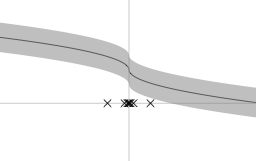A Selection Bias Approach to Sensitivity Analysis for Causal Effects
Political Analysis, Vol. 22, No. 2 (2014): 169-192
The estimation of causal effects has a revered place in all fields of empirical political science, but a large volume methodological and applied work ignores a fundamental fact: most people are skeptical of estimated causal effects. In particular, researchers are often worried about the assumption of no omitted variables or no unmeasured confounders. This paper combines two approaches to sensitivity analysis to provide researchers with a tool to investigate how specific violations of no omitted variables alters their estimates. This approach can help researchers determine which narratives imply weaker results and which actually strengthen their claims. This gives researchers and critics a reasoned and quantitative approach to assessing the plausibility of causal effects. To demonstrate the approach, I present applications to three causal inference estimation strategies: regression, matching, and weighting.
- causalsens R package to implement methods